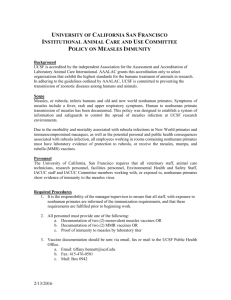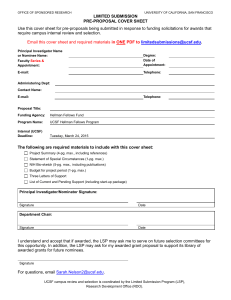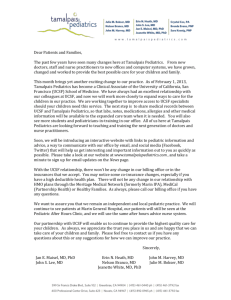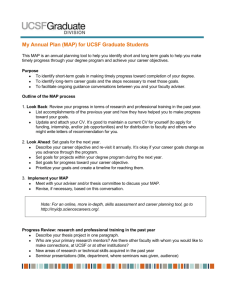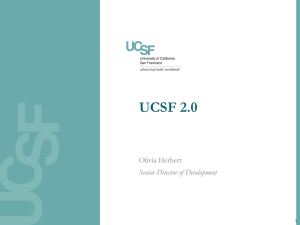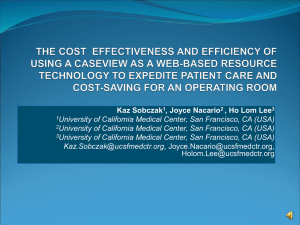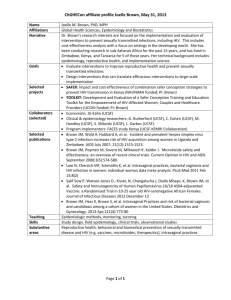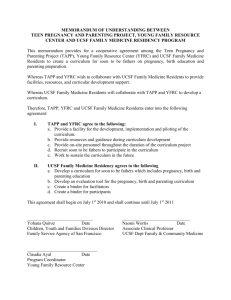IACUC_TB_Policy - UCSF Occupational Health Program
advertisement
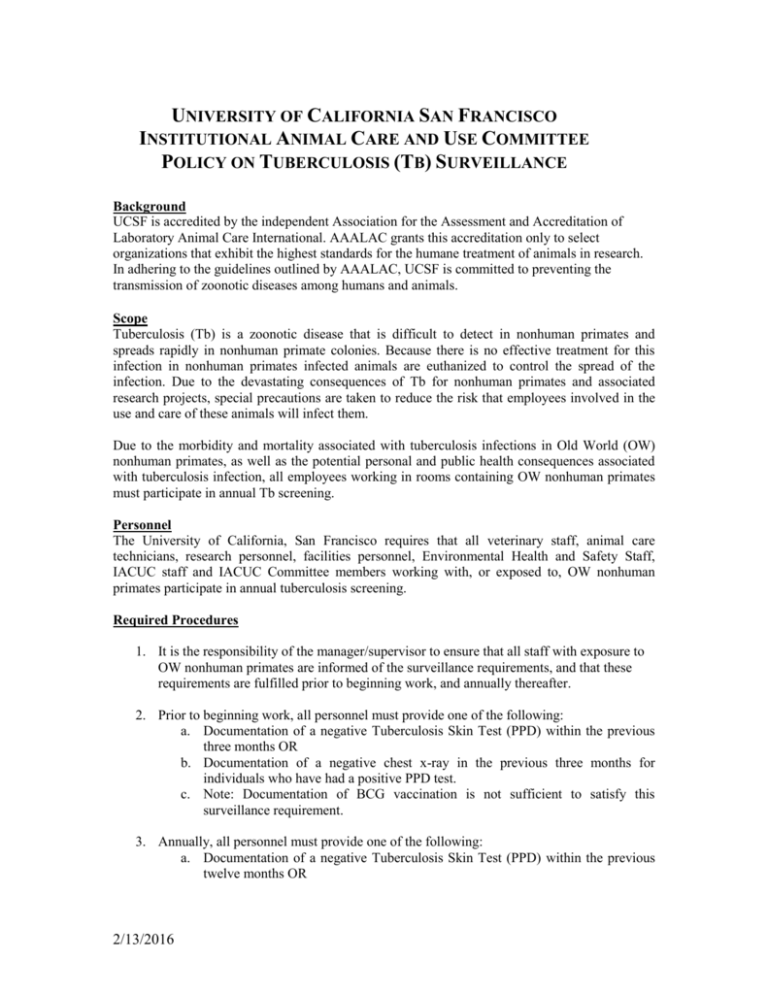
UNIVERSITY OF CALIFORNIA SAN FRANCISCO INSTITUTIONAL ANIMAL CARE AND USE COMMITTEE POLICY ON TUBERCULOSIS (TB) SURVEILLANCE Background UCSF is accredited by the independent Association for the Assessment and Accreditation of Laboratory Animal Care International. AAALAC grants this accreditation only to select organizations that exhibit the highest standards for the humane treatment of animals in research. In adhering to the guidelines outlined by AAALAC, UCSF is committed to preventing the transmission of zoonotic diseases among humans and animals. Scope Tuberculosis (Tb) is a zoonotic disease that is difficult to detect in nonhuman primates and spreads rapidly in nonhuman primate colonies. Because there is no effective treatment for this infection in nonhuman primates infected animals are euthanized to control the spread of the infection. Due to the devastating consequences of Tb for nonhuman primates and associated research projects, special precautions are taken to reduce the risk that employees involved in the use and care of these animals will infect them. Due to the morbidity and mortality associated with tuberculosis infections in Old World (OW) nonhuman primates, as well as the potential personal and public health consequences associated with tuberculosis infection, all employees working in rooms containing OW nonhuman primates must participate in annual Tb screening. Personnel The University of California, San Francisco requires that all veterinary staff, animal care technicians, research personnel, facilities personnel, Environmental Health and Safety Staff, IACUC staff and IACUC Committee members working with, or exposed to, OW nonhuman primates participate in annual tuberculosis screening. Required Procedures 1. It is the responsibility of the manager/supervisor to ensure that all staff with exposure to OW nonhuman primates are informed of the surveillance requirements, and that these requirements are fulfilled prior to beginning work, and annually thereafter. 2. Prior to beginning work, all personnel must provide one of the following: a. Documentation of a negative Tuberculosis Skin Test (PPD) within the previous three months OR b. Documentation of a negative chest x-ray in the previous three months for individuals who have had a positive PPD test. c. Note: Documentation of BCG vaccination is not sufficient to satisfy this surveillance requirement. 3. Annually, all personnel must provide one of the following: a. Documentation of a negative Tuberculosis Skin Test (PPD) within the previous twelve months OR 2/13/2016 b. Documentation of a negative Symptom Review Form within the previous twelve months. Completion of a Symptom Review Form is an acceptable form of Tb screening only for those individuals who have previously tested positive on a PPD. OR c. Documentation of a negative chest X-ray for individuals who have had a positive Symptom Review Form, or who have converted to a positive PPD in the previous 12 months. 4. Tuberculosis screening documentation should be sent via email, fax or mail to the UCSF Public Health Office. a. Email: tiffany.bennett@ucsf.edu b. Fax: 415-476-0581 c. Mail: Box 0942 5. New employees without tuberculosis screening documentation must visit Occupational Health Services. The following steps must be followed to obtain Tb surveillance: a. Complete and forward a Request for Service form to UCSF Occupational Health Services: http://www.occupationalhealthprogram.ucsf.edu/Forms/OHS_Request_for_Servi ce.doc b. Contact UCSF Occupational Health Services (OHS) after the Request for Service Form is submitted to schedule an appointment for Tb surveillance. UCSF OHS can be contacted as follows: UCSF Occupational Health Services Phone: 415-885-7580 Fax: 415-771-4472 http://www.occupationalhealthprogram.ucsf.edu/ 6. Current Employees may visit Occupational Health Services during their drop-in hours or Tb Clinic days to receive Tb screening. No appointment or paperwork is required. Information regarding drop-in and clinic hours can be found on the UCSF Occupational Health website: http://www.occupationalhealthprogram.ucsf.edu/. 7. Once Tb screening results have been submitted, and/or all appropriate documentation has been received, the Public Health Officer will electronically submit an Animal Exposure Work Clearance to the individual, as well as the individual’s supervisor. 8. Employees with a positive chest x-ray will not be allowed to work until documentation of medical clearance from a physician has been received by Occupational Health Services. 9. If an employee fails to comply with any of the above requirements, the Public Health Office will inform his/her supervisor and the IACUC that the worker is not cleared to work with nonhuman primates. 2/13/2016 For Additional Information Contact the Public Health Office: Tiffany Bennett Assistant to the Public Health Officer Office of Environmental Health and Safety tiffany.bennett@ucsf.edu (415) 514-3531 Krista Lindstrom, DVM, MPH Public Health Officer Office of Environmental Health and Safety krista.lindstrom@ucsf.edu (415) 476-1722 Stephen Born, MD, MPH Associate Clinical Professor Occupational and Environmental Medicine sborn@sfghoem.ucsf.edu (415) 206-5769 2/13/2016
